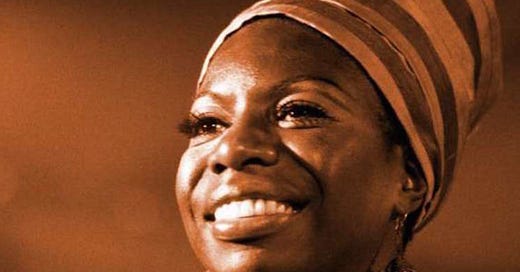Life is short. People are not easy to know. They’re not easy to know, so if you don’t tell them how you feel, you’re not going to get anywhere, I feel.
I tell you what freedom is to me: no fear.
Nina Simone
If you read the post on your phone and the button “Read in English” doesn’t work, scroll down the page: the English version is after the Italian one.
O…
Keep reading with a 7-day free trial
Subscribe to (((RADIO PIAN PIANO))) to keep reading this post and get 7 days of free access to the full post archives.




